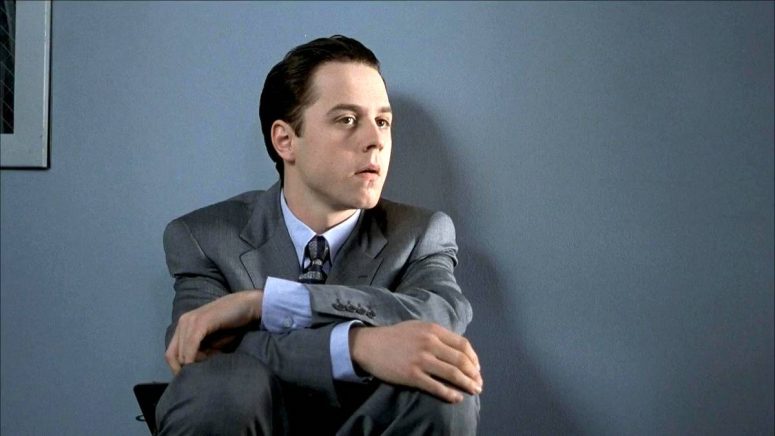
Courtesy New Line Cinema
“Hi, human. I sell this thing (in my case writing) for a living because I believe in it. It’s benefited myself and others you may know. Are you the right person to pitch? If no, do you know someone who is? If yes, is now a good time?”
I’ve been writing full time for 10 years now. Much of that time, if not half of the time, is spent asking people if I can write for them. In that sense, I’m either a writer who knows how to sell, or a seller who knows how to write.
Either way, I’ve followed the above pitch for the last decade. I don’t know if it’s the best sales approach, but it’s worked alright for me, and it’s one I feel is the most respectful.
Know a better way?

Courtesy Robert Clark/TIME
“Once the dump trucks and bulldozers have cleared away the rubble and a thousand funeral Masses have been said, once the streets are swept clean of ash and glass and the stores and monuments and airports reopen, once we have begun to explain this to our children and to ourselves, what will we do? What else but build new cathedrals, and if they are bombed, build some more. Because the faith is in the act of building, not the building itself, and no amount of terror can keep us from scraping the sky.”—Nancy Gibbs (written three days after the bombing of the Twin Towers, but before the big holes were “built” in their place)

Skydived today…

Didn’t die.

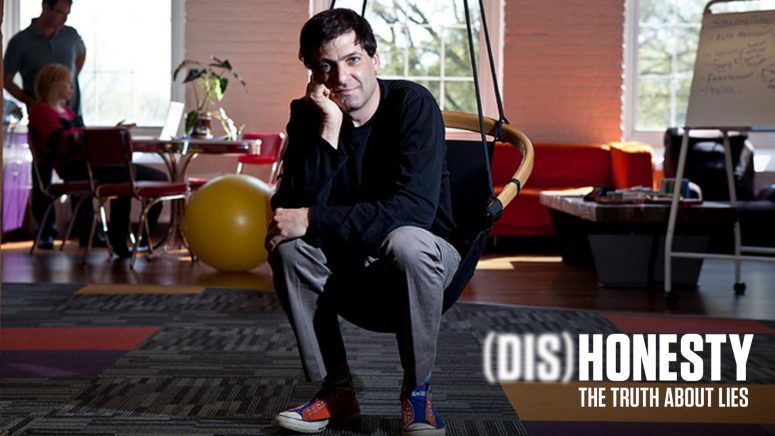
Courtesy YouTube
I recently watched (Dis)Honesty: The Truth About Lies. This is what I learned:
- Honor codes, moral self-reminders before brushing with temptation, and asking others to be honest in tempting situations can reduce dishonesty to almost zero, researchers found.
- People are increasingly dishonest as they distance themselves from tangible things (i.e. its easier to steal digital money than tangible money, and it’s easier to cheat in golf by kicking your ball while looking away as opposed to picking it up). To heighten honesty, look at ill behavior right in the face before doing it.
- Everybody is dishonest. Everybody. And all nationalities are equally dishonest, researchers found. It’s just that foreign cultures feel more dishonest because they cheat in unfamiliar ways.
- Scandinavian economies and The U.S. have the world’s highest levels of social trust—Africa and South America the least, which has a dramatic effect in the size and health of those respective economies.
- Bankers cheat twice as much as politicians. Lying can be appropriate when it’s done for the good of others as opposed to selfish reasons and only if the truth wouldn’t later upset the person that was deceived (i.e. telling a hysterical passenger on a crashing plane that you’re an aeronautics engineer and everything is going to be okay or lying to your children to keep them out of imminent danger or harm’s way).
Highly recommended. Four stars out of five.

Courtesy Andy Feige
Here’s what I wrote about last month:

Michael Balint
The following people are giants in my eyes. Without their supportive shoulders and encouraging spirit, I would be at a disadvantage: Continue reading…

Courtesy Cisco
What grade would you give education technology? I asked around last month while reporting for Cisco.com.

The world wouldn’t be as amazing today if it weren’t for the combustable car engine, pictured at left.
But this engine is 100 years old, has a lot of moving parts that can fail, and isn’t nearly as simple, efficient, or as powerfully fast as the much simpler and smaller engine pictured at right—a newer Tesla motor that fits neatly between rear wheels.
“I think many people don’t realize what we are witnessing at the moment,” writes Quora expert Andrius Adamonis. “Several years from now, we will look back and think, ‘WOW! We used to have engines that were powered by small EXPLOSIONS inside!'”

wikimedia commons
To improve the future of education, America must focus on science, technology, engineering, and math fields (aka STEM). We must also meet, if not exceed, international test scores.
Or should we?
Said focus has increasingly been criticized in recent years—ironically due to a lack of scientific evidence. After researching “hundreds” of reports from the past six decades, for instance, Robert Charette of The Institute of Electrical and Electronics Engineers said the so-called STEM shortage “is a myth.”
Continue reading…
 Does .99 cent pricing really work? Wouldn’t it be easier to round everything to the nearest dollar?
Does .99 cent pricing really work? Wouldn’t it be easier to round everything to the nearest dollar?
The answer to both those questions is a resounding “yes.” Although it would be easier to round up, stores use so-called psychological pricing because it demonstrably boosts sales by 8%, according to one study of 60,000 mail-order catalogs.
In short, the 30,000 customers that received rounded up pricing spent 8% less than the 30,000 catalog recipients of 99 cent pricing. (Note: The two catalogs were identical except for pricing.)
Granted, this study was performed 20 years ago. But with those kind of gains, the trend is sure to stick around for a long time.

Dumfounded by the beauty of the Italian Alps
Reporting for Paste Magazine…

credit: blake snow
Life is hard sometimes. It’s always hard if you do any of the following with regularity: Continue reading…
[youtube]http://www.youtube.com/watch?v=d6wRkzCW5qI[/youtube]
This two minute video by Matthew Belinkie is as good today as it was when I first shared it eight years ago.

My talented friend Davey Saunders is at it again. The below was first appeared on his Facebook page and is republished here with his permission. Pessimists are encouraged to skip this post.
Metaphorical waves roll into our lives on a pretty regular basis.
Emotional. Physical. Mental. Spiritual. Some we are able to ride out, some we can tuck under, and some break right on top of us —driving us helplessly into the water and currents beneath, until we regain our senses and are able to right ourselves again.
Some waves are rogue, and some come in sets that seem to have no end. There are times I have been, literally and figuratively, pulled from the grasp of the relentless seas. And there are times when I thought I had already drowned.
I am not upset by the challenges the ocean brings. If there was no water, how would I learn to swim? If there was no current to fight, how would I build the strength to hold on? And if there were no waves, how would I ever learn to surf?
So let them come. Let them bring their wrath and their might.
Just remember: with each shove and push from the waves, we are brought closer to shore. And then suddenly we find the furious roar that used to beat us down is now the very soothing sound of the surf… playing its sweet rhythms as we rest in the sand.

I started freelance writing for Cisco.com last month. Here are my first few stories:
 This writing by Kathryn Schulz on what it means to be American is beautiful:
This writing by Kathryn Schulz on what it means to be American is beautiful:
Over and over, we forget what being American means. The radical premise of our nation is that one people can be made from many, yet in each new generation we find reasons to limit who those “many” can be—to wall off access to America, literally or figuratively. That impulse usually finds its roots in claims about who we used to be, but nativist nostalgia is a fantasy. We have always been a pluralist nation, with a past far richer and stranger than we choose to recall. Back when the streets of Sheridan were still dirt and Zarif Khan was still young, the Muslim who made his living selling Mexican food in the Wild West would put up a tamale for stakes and race local cowboys barefoot down Main Street. History does not record who won.

Credit Lindsey Snow
Here’s where my travel column went last month:

Dumfounded by the beauty of the surrounding Italian Alps
I just returned from a 10 day, 85 mile, three country hike around Mont Blanc. I’ll publish a full report of the epic G Adventures expedition to my column next month. Until then, I hope you enjoy these photos I took: Continue reading…
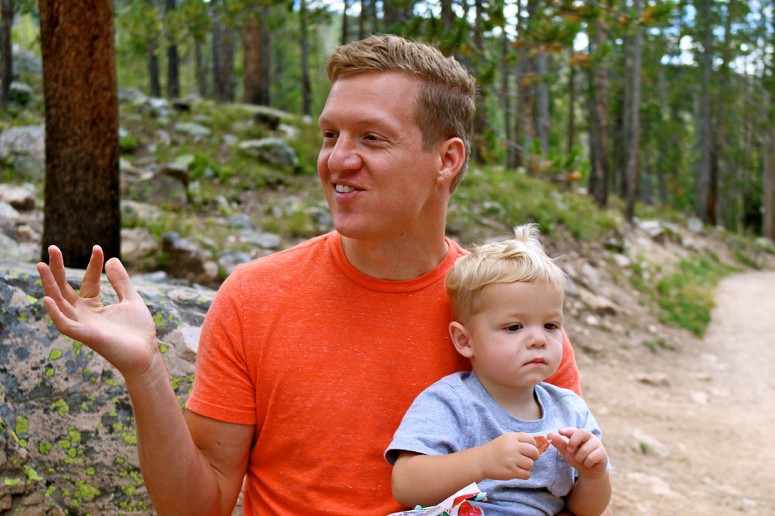
Photo: Lindsey Snow
In recent years, a new ideology has emerged. It is this: work-life balance is impossible; therefore, humanity must embrace work-life blending instead.
I tried work-life blending for six years before we ever called it that. I’m here to tell you it stinks and is largely a pipe dream—nothing more than a new term coined by self-absorbed workaholics to justify their personal regrets, negligence, and imbalances in life.
Now let me tell you how I really feel. Continue reading…

Credit CC/Fred Mancosu
The below short story entitled “Birthday Cake” was written by my friend Josh Ray (under pseudonym) and published with his permission. I hope you enjoy it as much as I do.
I got a birthday. I suppose everybody does, and it comes around every year at the same time. That’s the way they do. Mine’s in November, but I don’t suppose that matters much one way or the other for this story. Anyway, I’m gonna tell you about two birthdays I had in particular. Continue reading…
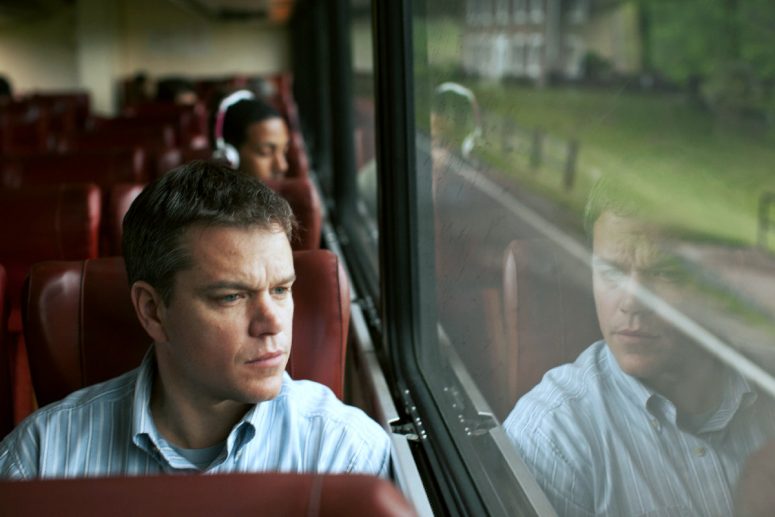
Courtesy Focus Features
Oil will not run out for a very long time. If or when it eventually does, we will just manufacture it from coal. That’s according to respected UC Berkley physicist Richard Muller.
Granted, Muller is neither an energy expert or clairvoyant. But as a top Quora writer, he’s one of the most educated and smartest persons I’ve read on a range of subjects.
So what might the future of energy look like? Because it runs circles around the power and convenience of other energy sources—seriously, oil’s potency is remarkable—the black gooey substance will remain the go-to-source for mobile transportation with nuclear powering an increasing amount of the grid. Continue reading…

Credit: Sandeepa Chetan/Creative Commons
Entitled Gujja kids from Kashmir, India, it was shot in 2014 by Sandeepa Chetan and is glorious. Please share it.
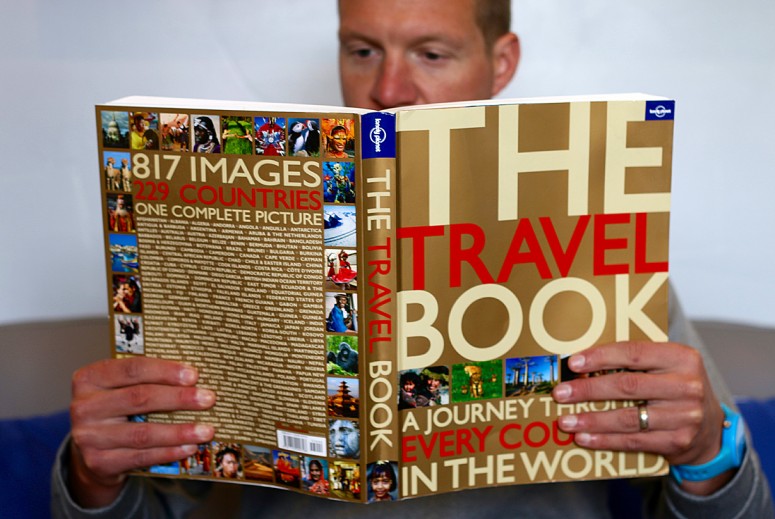
credit Lindsey Snow
For those who care, here’s where my travel column went last month:

Yours truly surfing Lake Powell
Someone recently asked me what I’m excited about. “Oh, I don’t know,” I lied. Not because I didn’t have an answer. I just hadn’t articulated it yet.
After further deliberation, here is my answer: Continue reading…

As someone who’s written hundreds of articles for fancy publications, I’m often asked the best way to land free publicity.
Outside of knowing when you have truly have something that’s noteworthy and knowing which audiences are most likely to find your something relevant, my colleague Josh Steimle recently wrote about the subject for Entrepreneur; specifically how to get great PR in 15 minutes per day.
Josh was kind enough to interview and quote me in the article. This is what I said: “Indirect PR pitches are the best way to increase your chances of a media placement. Rather than talking about yourself, explain a larger trend that might interest the journalist or publication you’re pitching, complete with stats, anecdotes and data.
“Your contribution should be only part of the story. Doing so not only makes the press’s job easier but demonstrates greater objectivity, further increasing your chances of a placement.”
In my experience as someone being pitched, that approach leads to a lot more placements.
Since we’re on the subject, now go watch Ace in the Hole, All The Presidents Men, State of Play, and Spotlight—all good if not remarkable movies on journalism.

Courtesy Cinemagraphs
For most of my 20s, I largely existed to leave my mark upon the world and strike it rich. In order to achieve those goals, I labored through the day and voluntarily burned the midnight oil. In other words, I lived to work—how cliche of me!
As I approached 30, something happened. I experienced what I call my Montana Moment—cheesy, but catchy! I realized that my double life as a work-a-holic and present husband and father could no longer be sustained.
So I changed. I set strict boundaries on my time and never looked back. If I was going to be remarkable, I was going to have to do so in a set number of hours and no longer at the expense of my health, family, sleep, friendships, and self-improvement. (That change, by the way, was the catalyst behind my still unfinished book.) Continue reading…
 My latest, reporting for Paste Magazine:
My latest, reporting for Paste Magazine:
“Obviously, user review repositories such as TripAdvisor, Yelp, and Google are a net gain for people in need of lodging, a delicious meal, or a new tool, gadget, or surprise to solve their current problem. But as we increasingly turn to big, crowd-funded data to help us stay informed and avoid buyer’s remorse, we need to be thinking of better ways to get the most up-to-date and accurate information available while also rewarding the efforts of those who aim to please us.”
Continue reading…
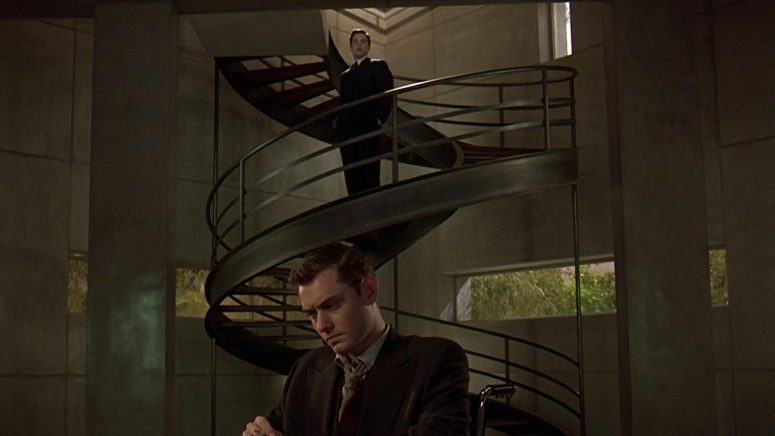
Columbia Pictures
I recently completed a $150 DNA test for a story I’m working on. Without going into too much detail, this is what I learned:
- I’m healthy. Of 36 diseases tested, I’m not a carrier of any problematic genes. Phew!
- I’m 99.9% European. That’s code for “white privilege.”
- I’m ordinary. For example, I’m a normal sleeper. And although we were all Born to Run, my muscles are more “sprinter” than “endurance” type.
- I got confirmation of what I’ve already observed. For instance, I don’t posses the bald gene, I’m not hairy, my ring finger is longer than my index, my second toe is longer than my big toe, I have wet earwax, and my skin is fair. Go figure!
- Genes are overrated. Like my favorite sci-fi move so eloquently proves, our genes do not define who we are or how we choose to live. Yes, DNA is important and can have a big impact on our circumstance. But it does not determine our destiny or who we chose to become with the cards we’ve been dealt.
That’s it for now. Stay tuned for the full story.
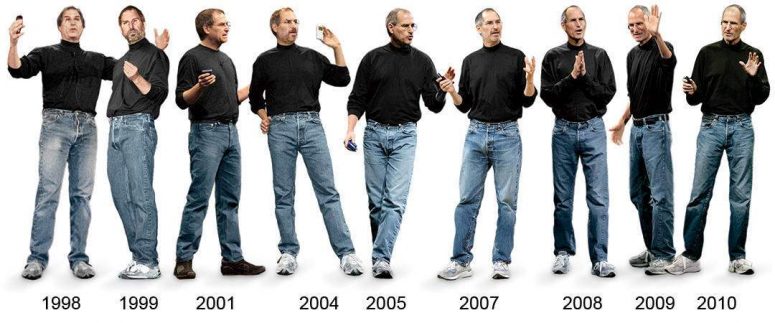
I admire Steve Jobs and Mark Zuckerberg. Both are big thinkers and deserve to be imitated by any who hope to follow their success.
But unless you’re already a celebrity (or otherwise top 10) executive, you probably shouldn’t follow their tacky example of wearing the same casual uniform everyday. Here’s why: Continue reading…
In the early 1900s, bananas may have been named the world’s first superfood. At the time, even The American Medical Association praised them for being “sealed by nature in practically germ-proof packages.”*
Although still one of the most nutrient-dense foods you can eat, bananas are no longer consider a superfood. (I eat one every morning, however, as they’re always in season). Trendy things like acai berries, green tea, quinoa, kale and other manufactured foods are. It’s gotten so out of hand, that the FDA issued a warning letter recently about falsely advertised “superfoods.” As of 2007, the European Union has prohibited food makers from using the term “superfood.”
So how can we distinguish marketing hype from science when seeking out nutrient-rich foods? Highbrow did just that recently. This is what they came up with—the top 10 superfoods backed by science. Continue reading…
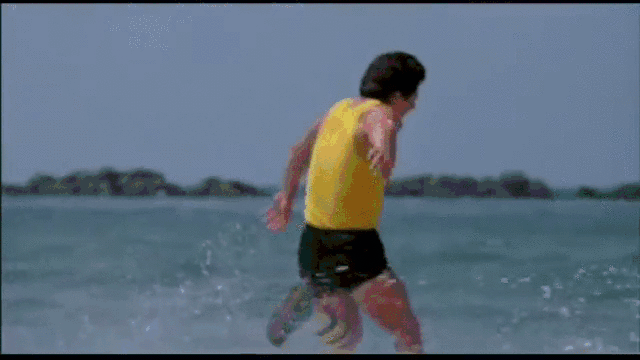
The United States of America is the mightiest nation the world has ever seen. (Murica!)
Its economy is bigger than the next four national economies combined. Its military spends more than the next 20 nations combined. Its human rights and democracy record are admired throughout the world. And in terms of pop culture, it’s arguably the “coolest” nation on the planet.
So how did the United States achieve all this?
History buff Balaji Viswanathan makes a pretty convincing argument on Quora. Here are his reasons: Continue reading…
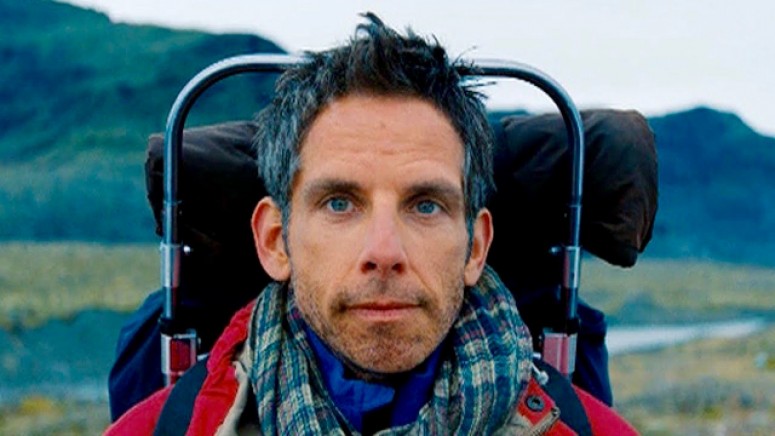
Courtesy 20th Century Fox
Here’s where my travel column went last month:

courtesy Google
Although the technology is “95% ready for mainstream use,” the home stretch will likely require another decade of coding, insiders say. Reporting for Paste Magazine…

For the record, I don’t consider myself a great writer. I’m certainly an effective, efficient, and sometimes amusing one. But I wouldn’t say great. The below, on the other hand, written by my friend Davey Saunders and published with his permission is great. I hope you enjoy it.
Continue reading…
As I often do, I cold emailed a bunch of people today asking if I could write for them. It was a great day. Not because one of them did this:
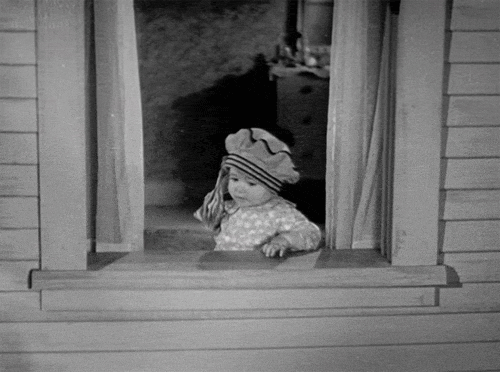
(They didn’t.) It was great because American strangers are wonderful to work with. They’re so freakin’ nice. Continue reading…

I’ve spoken highly about bluetooth speakers before, including the original UE Boom, Mega Boom, and Cambridge Audio. Like 21st century boomboxes, they bring music to life because they’re easy to pair with your phone and go anywhere.
This month, Ultimate Ears sent me a UE Boom 2 in the hopes I’d publicize it, which I’m doing now. Not because they asked me to. But because it maintains the full and deep sound of the original (although not as bumping as the Mega or as rich as the Cambridge) with twice the wireless range, a little more battery life, and pause and skip functions right on the speaker. That alone makes it a no-brainer consideration for budgets between $100-200.
That said, UE are giving away a limited edition Boom 2 (pictured) to blakesnow.com readers. Here are the official rules:
- You must reside in the U.S. (sorry international readers)
- You must share your favorite underrated or under-appreciated artist of all time in the below comments and convincingly explain why they deserve more airplay.
That’s it. I’ll announce and publish my favorite entry on May 15 and the speaker will ship shortly thereafter.
Thanks for playing. May the best entry win.
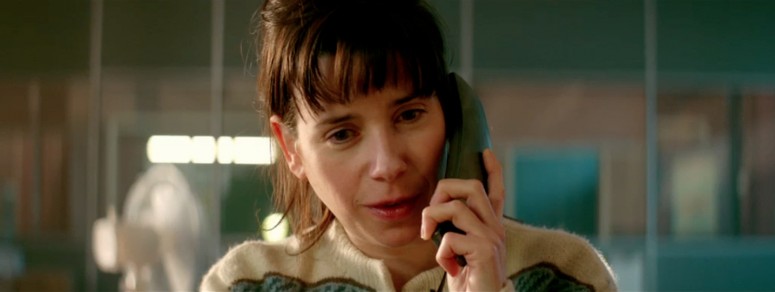
Courtesy RSA Films
Humans — either insecure or work-in-progress ones, myself very much included — often combat ignorance with ignorance. They fight prejudice with prejudice. They hypocritcaly label others as bigoted before crushing their own intolerance.
This is why the world can’t all get along. Continue reading…

courtesy wikimedia
- Keep a journal. Because they remind us of our thoughts and feelings as well as photographs remind us of people, places, and things.
- Say “no” to distractions. I’ve started doing this already by avoiding the news. Instead of consuming news in the morning, afternoon, and night, I now only read three newsletter summaries from my three favorite sources. This frees a massive amount of time without missing the most important stories to my work.
- Hire a professional coach. I did this a few years ago and it nearly doubled my sales. After become complacent recently, I need to do this again.
Continue reading…
You know the drill. Here’s where my travel column went last month:

credit blake snow
A happy wife is a happy life. Or so goes a popular adage.
This goes both ways, of course. But I suspect the saying is written primarily for men because we probably fail as spouses more often than women.
Either way, what’s the key to successful marriage?
First and foremost, always pretend you’re still courting your spouse, writes popular Quora author and Cal physicist Richard Muller. “Seduce. Entertain. Be nice,” he says. “Do all those things you did when you were trying to win her over.”
That means taking a sexual interest in them (not just maintenance, mind you—that’s not love-making), making them laugh, smile, and feel good about themselves, and respecting them no matter what (as opposed to misjudging, resenting, or objectifying them).
Lastly, “Don’t take them for granted, ever,” Muller says. Do this long enough and you’ll probably get divorced.
In other words, surprise them. Marriage is not a given. Do all you can to earn your keep. Contribute. Give. Don’t just take. Be the spouse you’d like to have.
Sage advice, Mr. Muller.

I sigh every time I see toilet paper hanging under the spool as opposed to over. Toilet paper orientation is a big deal. So big I sometimes switch offending rolls mid bowel movement. It’s one of my OCD indulgences.
But spool orientation is more than just preference. Researcher Barry Sinrod found that 68% of Americans roll over. In fact, 60% of those who earn $50,000 a year or more roll over. Meanwhile, 73% of those who earned less than $20,000 roll under.
When asked what his research proves, Sinrod replied, “I don’t know, but it’s sure interesting.”
I’ll give it a shot. Rolling over conserves more paper. It’s not as easy to let it fly, but it offers better control. Under, on the other hand, is easier. Similarly, making less than $20,000 a year is easier than $50,000.
Granted, being underprivileged isn’t always about taking the easy road, even though it is some of the time. And 40% of middle class and higher roll under. But that’s the best I can come up with.

credit lindsey snow
My wife and I asked and answered five simple questions over a picnic lunch on our sun-drenched driveway today. Most of our answers are closely aligned. This is what I came up with:
What things do you value most in life?
Happiness, which is largely derived from my wife (aka love life), my experiences, my children, the food I eat, the friends I play with, my work as a writer, and my faith.
What is your biggest achievement so far?
Marriage, children, and getting hired by and published in fancy media and blue-chip company publications.
Where do you want to be in five years?
Same house, all the kids in school, still healthy, discoverer of at least five new hobbies, published non-fiction author, discoverer of five new friends, sailor, visitor of all seven continents (Antarctica, Asia, and Australia still pending). My wife answered, “Skiing every weekday with friends, more involved in the community.”
What are some of your favorite books?
Of the top of my head: A Short History of Nearly Everything, Planet of the Apes, Thinking Fast and Slow, Unbroken, And Then There Were None, The Last Place on Earth, The AP Guide to News and Feature Writing (more here).
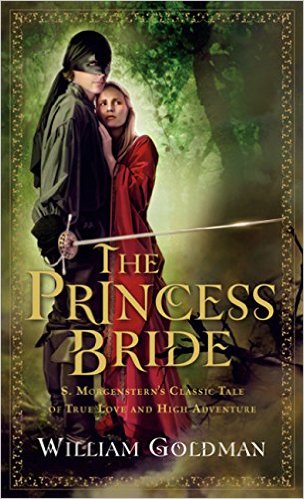 Found another one. In addition to Stardust and The Natural, The Princess Bride by William Goldman is a better film than book.
Found another one. In addition to Stardust and The Natural, The Princess Bride by William Goldman is a better film than book.
I read the latter this month and was in awe of the actual book within a book. Admittedly, Goldman is a remarkably creative, funny, and powerful writer. But the literary mechanism he uses to set up, interject, and conclude the beloved ’80s story — in this case pretending to be a humbled author searching for his next great hit by abridging “the good parts version” of another fictional author’s larger work — detracts from an otherwise five-star effort.
I suspect even Goldman realized this when writing his award-wining screenplay for the actual movie 14 years after publishing the book. Instead of his original, confusing, and over-the-top author trope, Goldman instead opts for the much cleaner “grandpa reading the story to his sick grandson” setting.
Either way, Goldman is a sarcastic genius. And I’m glad he finally got it right. Four stars out of five. Would have awarded it five stars had it not been for the above oversight.
If you do read it, skip the setup, treat Goldman’s interjections as author’s notes, and head straight for the exceptional story of true love, Inigo’s heartwarming backstory that is strong enough to stand on its own, and dozens of beautiful passages like this:
- The woman who emerged was a trifle thinner, a great deal wiser, an ocean sadder. This one understood the nature of pain, and beneath the glory of her features, there was character, and a sure knowledge of suffering.
- The rope seemed almost alive, the greatest of all water serpents heading at last for home.
- His eyes bulged wide, full of horror and pain. It was glorious. If you like that kind of thing.
- I really do think that love is the best thing in the world, except for cough drops. But I also have to say, for the umpty-umpth time, that life isn’t fair. It’s just fairer than death, that’s all.
I, Blake Snow, wrote this for my children, but figured you might enjoy it too. According to science, the following habits lead to a healthy, happy, and sustainable lifestyle: Continue reading…
Content marketing has been around for centuries—ever since the first newspaper figured out they could sell ad space against stories that interested people. But it wasn’t until the last few years—even after mostly failed corporate blogging efforts—that content marketing has become a staple of modern marketing budgets in the social media age.
Consequently, commercial brands, communication departments, and Fortune 500 marketing arms are hiring former journalists, editors, and content strategists at an astonishing rate. One well-known software maker I consult for even has a bona fide news department. The place bustles like the New York Times newsroom. Their editorial content is generating executive interest and finding traction with online audiences.
That said, we’re still in the wild west of content marketing. Here are 10 ways to lay claim on the new frontier. Continue reading…
Here’s where my travel column went last month. Better late than never:

Warner Bros.
As seen on the Internet:
- How Mark Zuckerberg should give away $45 billion by Michael Hobbes. I cringe at the idea of telling other people how they should spend their money, but I’ll let it slide in this clever case as it tells the larger story of how philanthropy might change for the better.
- The creepiest thing that’s ever happened to me. This non-fiction story by Mark Blanchard about breaking down on the loneliest road in America with his girlfriend is not only incredibly written and told, but it’s a modern day mystery with a Pee-Wee’s big adventure like twist.
- The case for a bright American future. Living in fear is for Satanic people who watch too much news. The world is in good hands. Or so says the Oracle of Omaha.
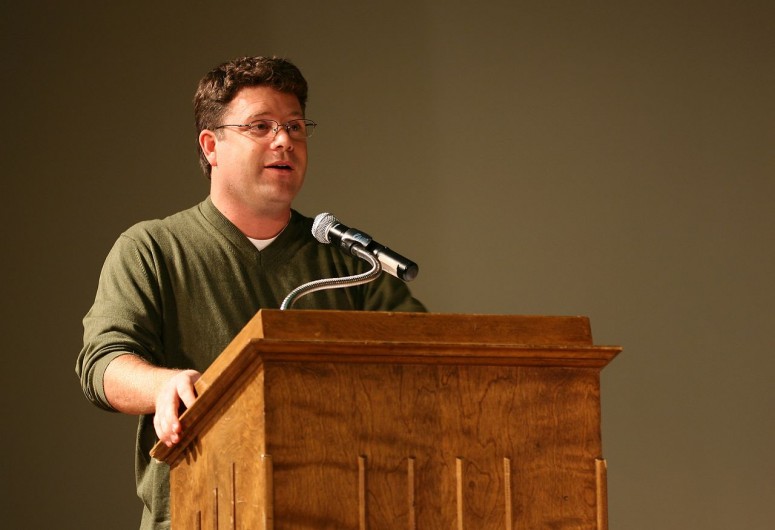
courtesy wikimedia commons
When motivating others, take away expectant freebies instead of giving rewards. That’s the take-away of a new study, which found that loss aversion works twice as well (or 82% of) task completion when compared to rewards, which works only 43% of the time.
In other words, promise a desired effect to everyone (in this case, no course final), then take it away if they fail to do as you ask (in this case, pass weekly quizzes). This may seem the same as rewarding someone with no final, but people place a higher value on things they already posses, which motivates them to work harder to keep it than doing something for an award.
Of course, awards still work and are often the only thing you can use when motivating yourself. But loss aversion is a lot more effective.
See also: 9 things Rudy teaches about motivation
Six months after I started blogging in 2005, I got my first check for writing. I’ve learned a lot since then. But many professional stories, outlets, and years later, I still didn’t know how to distinguish an em dash (the really long hyphen) from parentheses.
That is until this week. Turns out, em dashes are reserved for brief interuptions that are unrelated to the preceding clause, whereas parentheses are primarly reserved for clarification of the preceding clause, writes Sarah Stanley, who strikes again! For example:
- Johnny asked me—with a straight face, I might add—if he could borrow the car for the weekend.
- Anyone can edit Wikipedia (not that there’s anything wrong with that).
Continue reading…

I haven’t read George Orwell‘s six rules for writing since 2005, the year I started blogging and freelancing for Aol. Today Sarah Stanley reminded me of them, and I think they’re tops. Tops, I say!
- Never use a metaphor, simile, or other figure of speech you are used to seeing in print.
- Never use a long word where a short one will do.
- If it is possible to cut a word out, always cut it out.
- Never use the passive where you can use the active.
- Never use a foreign phrase, scientific word, or jargon if you can think of an everyday English equivalent.
- Break any of these rules sooner than say anything outright barbarous.
Numbers 2–5 have served me well in my career (i.e. concise language that everyday humans can understand). I’m guilty of number one, however. When on deadline adages accidentally spill sometimes.
I’m mixed about number six. Although admitedly the more noble thing to do, snark, harsh criticism, and emotional writing helped me find an audience early in my career. It’s cheap but it works. Maybe four out of six is good enough.












 Does .99 cent pricing really work? Wouldn’t it be easier to round everything to the nearest dollar?
Does .99 cent pricing really work? Wouldn’t it be easier to round everything to the nearest dollar?



 This writing by
This writing by 








 My latest, reporting for Paste Magazine:
My latest, reporting for Paste Magazine:














 Found another one. In addition to
Found another one. In addition to 




